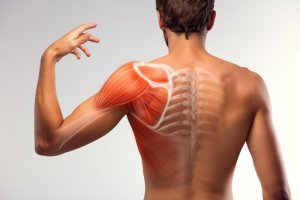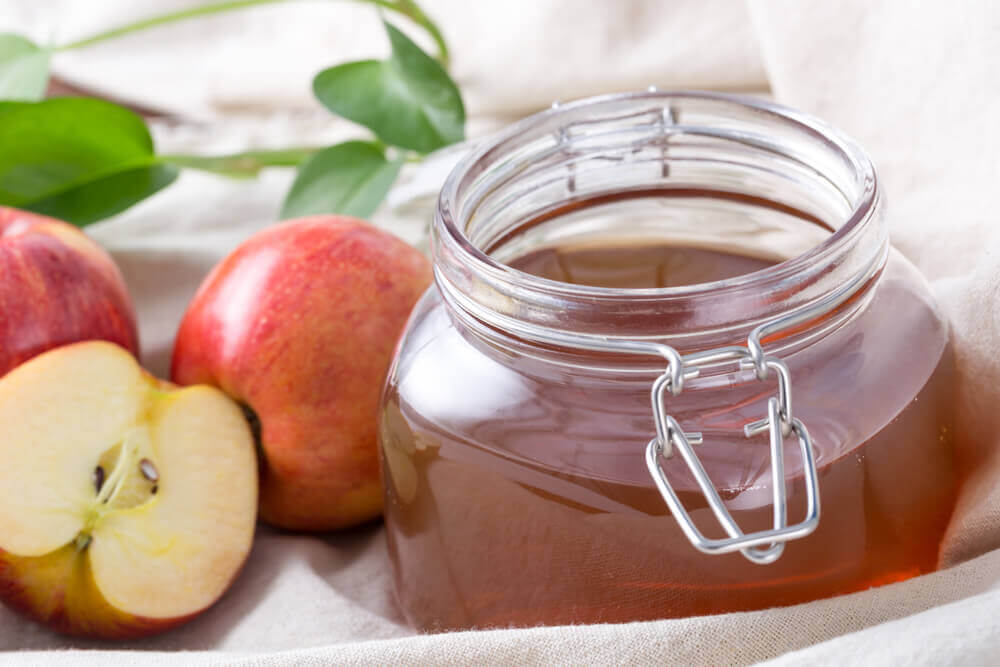7 Home Solutions to Reduce Muscle Spasms


Reviewed and approved by the doctor Maricela Jiménez López
Muscle pains and spasms can be caused by several different factors. You may or may not know the reason for this annoying kind of pain.
In most cases, stress, muscle tension, falls, a wrong movement, or even the flu can cause muscle damage, muscle discomfort or weak muscles.
Thus, it’s very important to know how to relieve muscle pain because it directly affects our daily life. This is because it can prevent you from going on about your day as usual because you’re only thinking about the pain. In turn, muscle pain is directly related to spasms, which are involuntary movements that appear suddenly in our body and range from annoying to painful.
Home remedies to treat muscle spasms

Natural products are ideal for relieving discomforts in our bodies. Keep reading for a list of the seven best solutions to treat or prevent muscle pain and muscle spasms.
1. Hot water
Hot, even warm, water is perfect for relaxing muscles. It is one of the most widely used home remedies due to its simplicity and effectiveness.
In fact, a study published in the Journal of Sports Science showed that the application of heat or hot water helps reduce muscle spasms. This technique, known as thermotherapy, promotes muscle relaxation, increases circulation, reduces inflammation, and relieves pain.
- Ideally, you should have a hot water bag, hot compress, or a cloth soaked in hot water. Once the hot compress is applied to the affected area, it will help stimulate blood circulation, which will decrease muscle tension and inflammation.
- You can also save time by directly apply hot water on the affected area during a shower or bath.
2. Rosemary
Rosemary is a medicinal herb that can be used to treat or relieve several ailments of the body. At least according to this study conducted by the Universidade Estadual Paulista in Brazil. In this case, an infusion with rosemary can help the inflammation and pain disappear. Moisten a cloth with the rosemary infusion and apply it to the area you wish to treat.
- If you have rosemary oil, you can gently but firmly massage it on the afflicted area to alleviate pain and inflammation.
3. Increase your potassium intake

A lack of potassium can cause severe muscle spasms. According to this study conducted by the Necker Hospital in Paris, France, this valuable nutrient can help prevent extreme muscle cramps.
To prevent them you must increase your intake of potassium rich foods. The most common and well-known potassium-rich food is bananas. However, if you don’t like bananas, you can mask its flavor or texture in a smoothie or juice with other fruits.
We suggest you read 9 Fruits that are Rich in Potassium
4. Apple cider vinegar
Apple cider vinegar is highly versatile. Not only is it a great household cleaning product, but it also contains medicinal properties. For example, it helps the body combat muscle spasms and pain, according to this study conducted by the Malaysian Agricultural Research and Development Institute. For this reason, it’s an ideal remedy to relieve muscle discomfort.
- To use apple cider vinegar as a home remedy, first create a mixture of water and two cups of apple cider vinegar (500 ml)
- Another option is to soak a cloth, gauze, or other compress in the mixture and then wrap the affected area for 30 minutes
5. Ice
Whenever most people think of muscular discomfort, they immediately think of ice. It is a great natural anti-inflammatory that’s also readily available in the home.
In fact, a study published in Offarm states that the application of cold or cryotherapy improves pain and accompanying muscle spasm in various injuries. In addition, it ensures proper blood flow to the area and doesn’t affect nearby healthy tissue.
- You can simply apply the ice by wrapping several ice cubes in a cloth or towel and applying to the affected area. Don’t apply ice directly, as it can burn the skin.
- Leave the ice on the affected area for 15 minutes. You can use this treatment two or three times a day, or whenever necessary.
6. Valerian Infusions
One of the most relaxing plants is Valerian. The analgesic properties of a valerian infusion help relax the body both mentally and physically. So says this study conducted by Shiraz University in Iran.
Ingredients
- 1 c. of water (250 ml)
- 1 tbsp. of Valerian (15 g)
Preparation
- Firstly, add the Valerian to a cup of hot water and let it steep for 5 to 10 minutes
- After 5 or 10 minutes, strain and drink
Ideally, drink the Valerian infusion before going to bed to help the body heal throughout the night.
7. Lavender Oil
Lavender oil may be your best bet to fighting off muscle spasms. Much like Valerian, lavender has relaxing properties (as explained in this article by the Shefa Neuroscience Research Center), and that’s why it’s often used in aromatherapy, air fresheners, and candles.
- Find some lavender oil at your local herbalist shop (or make your own)
- Apply the oil to the affected area and massage it until it is fully absorbed.
As you can see, these recommendations are basic, but they prove very effective in healing and eliminating muscle spasms. They’re a simple way to prevent muscle pain and improve your daily life.
In addition to the recommended remedies, you can gently massage the injured muscle and stretch it gradually. It’ll provide quick relief. If the pain is intense and doesn’t go away within a few days, consult your doctor as soon as possible.
All cited sources were thoroughly reviewed by our team to ensure their quality, reliability, currency, and validity. The bibliography of this article was considered reliable and of academic or scientific accuracy.
- Bordoni B, Sugumar K, Varacallo M. Muscle Cramps. In: StatPearls [Internet]. Treasure Island (FL): StatPearls Publishing; 2022 Jan.
- Ghasemzadeh Rahbardar M, Hosseinzadeh H. Therapeutic effects of rosemary (Rosmarinus officinalis L.) and its active constituents on nervous system disorders. Iran J Basic Med Sci. 2020 Sep;23(9):1100-1112.
- Jung AP, Bishop PA, Al-Nawwas A, Dale RB. Influence of Hydration and Electrolyte Supplementation on Incidence and Time to Onset of Exercise-Associated Muscle Cramps. J Athl Train. 2005 Jun;40(2):71-75.
- Nakamura K, Kodama T, Mukaino Y. Effects of active individual muscle stretching on muscle function. J Phys Ther Sci. 2014 Mar;26(3):341-4.
- Mense S. Muscle pain: mechanisms and clinical significance. Dtsch Arztebl Int. 2008 Mar;105(12):214-9.
- Miller KC. Plasma potassium concentration and content changes after banana ingestion in exercised men. J Athl Train. 2012 Nov-Dec;47(6):648-54.
- Rush P. Acute muscle spasm. CMAJ. 2001 Jul 10;165(1):13.
- Skurvydas A, Kamandulis S, Stanislovaitis A, Streckis V, Mamkus G, Drazdauskas A. Leg immersion in warm water, stretch-shortening exercise, and exercise-induced muscle damage. J Athl Train. 2008 Oct-Dec;43(6):592-9.
Vlavcheski F, Naimi M, Murphy B, Hudlicky T, Tsiani E. Rosmarinic Acid, a Rosemary Extract Polyphenol, Increases Skeletal Muscle Cell Glucose Uptake and Activates AMPK. Molecules. 2017 Oct 7;22(10):1669.
This text is provided for informational purposes only and does not replace consultation with a professional. If in doubt, consult your specialist.








